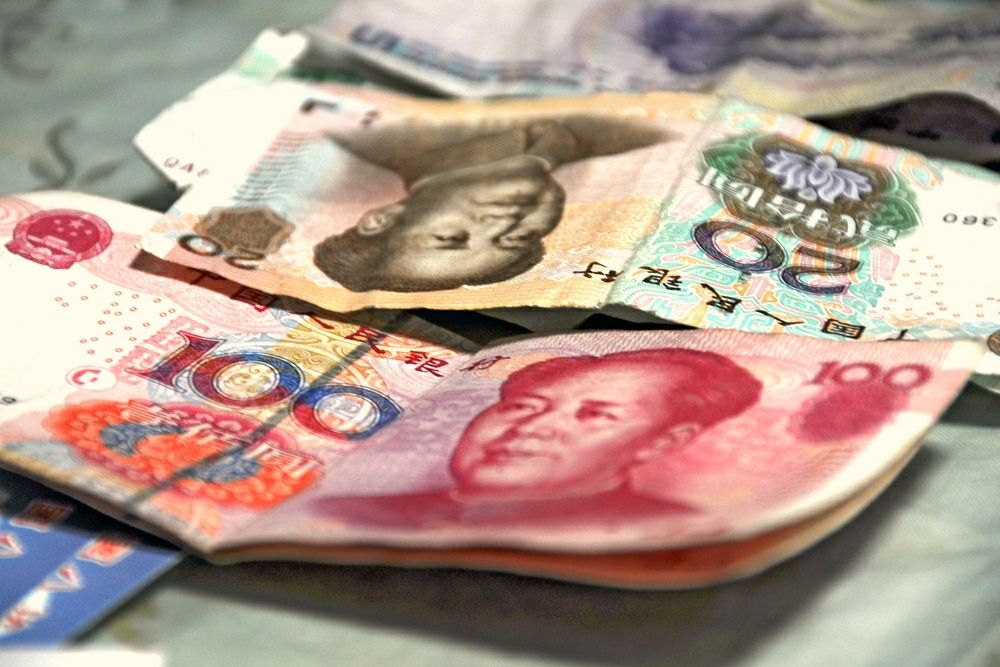Hong Kong Stock Exchange Adds Yuan-Denominated Shares

The Lede: The Hong Kong stock exchange has introduced shares denominated in the Chinese yuan, as China accelerates its efforts to globalize its currency with a goal of challenging the U.S. dollar in international trade and finance.
What we know:
- From June 19, 2023, prominent Hong Kong stocks and tech names such as Alibaba, Meituan, and Tencent will be part of a selection of 24 stocks that can be traded and priced in both the Chinese yuan and the Hong Kong dollar. The companies involved in what’s known as “HKD-RMB Dual Counter Model”, implemented on the Hong Kong stock exchange (HKEX), account for over $1.5 trillion in value.
- Shares expressed in either currency can be easily exchanged with shares expressed in the alternate currency without any restrictions, several media outlets reported, including Reuters and Fortune. With the dual counter arrangement in place, investors have the flexibility to trade stocks using either Hong Kong dollars through the HKD counter or yuan through the RMB counter. Market makers play a crucial role by ensuring sufficient liquidity and reducing any potential disparities in prices, according to Reuters.
- Although the program is presently limited to local Hong Kong and international investors outside China, HKEx aims to extend its reach to mainland China later this year to enhance the relatively slow trading volumes in Hong Kong.
- But, as Nikkei Asia reported, the extent of foreign participation is projected to be constrained due to the recent depreciation of the yuan and the relatively stable nature of the Hong Kong dollar, which is pegged to the U.S. dollar.
The background: The initiative comes at a time when China has been actively pushing for the internationalization of its currency, the yuan or Renminbi (RMB), and seeking to reduce its dependence on the U.S. dollar. Russia’s invasion of Ukraine has accelerated the shift by prompting sanction-hit Russia to seek alternatives to the U.S. dollar-dominated financial system. By April, the Chinese yuan had exceeded the U.S. dollar in trading volume and had emerged as the prevailing currency in Russia. Another milestone for Beijing came in the beginning of June when Pakistan made its inaugural government-to-government purchase of discounted Russian crude oil using Chinese currency, marking a deviation from its previous approach of primarily conducting export payments in U.S. dollars.
Since the beginning of the Ukraine war, the Renminbi's portion of world trade finance has doubled. In February, the percentage of trade conducted in China's currency experienced an increase to 4.5%, a significant rise from less than 2% recorded a year ago, approaching the level of trade conducted in the euro currency. Meanwhile, recent turbulence in the U.S. banking industry, coupled with government debt issues and the monetization of significant deficits, have undermined international trust in the U.S. dollar, according to Fortune’s reporting. Despite that the U.S. dollar still maintains its position as the prevailing global currency, comprising 42% of global payments, Reuters reported.
Likely outcomes/Takeaway:
- The availability of yuan-denominated shares on a major stock exchange like Hong Kong could lead to increased adoption and use of the Chinese currency in international trade and finance. If the initiative proves successful, it may prompt other countries to consider increasing their usage of the yuan for trade settlements and reserve holdings.
- At the same time, foreign participation in yuan-denominated shares could be limited due to factors such as currency fluctuations and the stability of the Hong Kong dollar, as yuan has been depreciating along China’s bumpy road to full economic recovery. Regulatory and geopolitical considerations could impact the progress of the yuan's internationalization efforts, since Beijing enforces stringent restrictions on cross-border transactions and foreign exchange.
Quotables:
- "I don't think it's going to have an imminent or immediate impact on the equity market. For the near term, I actually don't think that's going to be a game changer," Dong Chen, head of Asian macroeconomic research at Pictet Wealth Management.
- "China's hesitant recovery, its push for lower interest rates and its poor corporate profits are all deterring foreign investors," Alicia Garcia Herrero, chief economist for Asia Pacific at Natixis told Reuters.
Good Reads:
